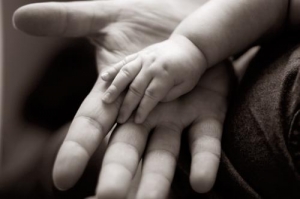Guest Writer for Wake Up World
Forgiveness is a concept that it’s really hard to understand, unless experienced first hand. I’ve struggled with it for a very long time, before I was able to fully understand what it means to forgive, why it’s so important that we do forgive all the wrong doings, and how to apply this incredibly healing tool in our lives.
I used to ask myself: “How can I forgive when it hurts so much???” I thought it was simply impossible to forgive all the pain and suffering I had to endure, especially in my childhood.
When I finally understood that the only way to free myself from such pain is through forgiveness, my perspective changed entirely. It became obvious to me that the question “How can I forgive when it hurts so much?” was out of context. The more accurate question was: “How could I not forgive when it hurts so much?” The moment I understood that forgiveness was the only way to heal, was the moment when I realized that, if I didn’t want to keep experiencing the pain, I really had no choice but to forgive.
From all the pain I’ve experienced – rape, abuse, depression – the rejection hurt the most. And of course, it was the hardest to forgive. As they say, hatred is not the opposite of love – indifference is. Feeling unnoticed, unrecognized, ignored and completely neglected is a feeling that I would not wish upon my worst enemy. Not surprisingly, such emotions were the main reasons that were hiding behind my several suicide attempts.
Breaking Through Denial
For a very long time (several decades, to be more specific) I was in complete denial about the resentment I was holding toward my mother. I had too much respect and too much admiration towards the woman that gave birth to me to allow myself to see her as a human being. Typical of a child, in my eyes my mother was nothing else but a faultless replica of God himself. She did earn my admiration in many ways, I won’t dispute that. She raised nine children, working full time, while not only financially struggling but living with an abusive husband as well. She seemed to possess the strength that not many people had. But she was not without her faults.
Her strength did not come to her for free. It had its price. The saddest part was that her children (myself included), whom she loved so much (and still does) were always the ones picking up the ‘tab’. My mother’s strength (and in other words, her love) did not come entirely from within herself, it came from those around her. She was born as an “illegitimate” child, and as such (in those still very primitive times) she was viewed as a burden by her own mother; the symbol of embarrassment and shame. Her father, (my grandfather) still remains unknown to me to this very day. There is no doubt that her childhood was anything but “a walk in the park”, and those feelings manifested in her adult life – and in my childhood.
Unfortunately my mother did not have the understanding that I have now. She didn’t understand that, in order to be able to show love to her own children the way they deserved – and the way she wanted – she had to find that love within herself first, and the only way she could have done that was if she forgave her own parents for neglecting her the way they did – and finally released that energy.
So my mother searched for that love and acceptance outside of herself. She became fascinated with religion and the Church. In fact she became obsessed with it. Her daily attendance at mass (sometimes even twice a day) gave her a temporary high, which she interpreted as a sense of belonging. But I believe she mistook that as a source of her inner strength. As time went on, her ‘addiction’ to Church became so strong and so overwhelming that she wasn’t able to see the sense of abandonment I felt every evening as a child, while waiting for her to come home. Blinded, she put herself and her children in a risky situation (just being home without her meant we risked being beaten up by her spouse) and we were understandably infuriated by her constant absence.
Giving Birth (Without The Epidural)
When I reached my mid-thirties, I was actually able to admit to myself as to where my fear of rejection had initiated. My marriage had finally shown me everything that I needed to see. I started to understand that my constant anger towards my husband, particularly when it came to his absence in the evenings, had a lot less to do with my spouse and a lot more to do with my mother’s absence. The excruciating pain I was feeling while waiting for my significant other to come home was the exact same pain I felt every day while waiting for my mother – for that outside strength – powered by the awful feeling of knowing that someone I loved would rather be someplace else instead of spending their time with me.
At first I resisted the reality every way I could, refusing to confront those feelings. I threatened my husband with divorce. I yelled, I screamed, and I cried myself to sleep almost every night. Nothing ever changed though. Things seemed to get progressively worst. I even began to hate my husband. He started to resent me as well. At one point I felt as if I was living with a stranger. The thing was, I cared way too much about my husband to just sit and watch our marriage going to ruins. So I had to do what was one of the hardest things I’ve ever had to do — I knew had to forgive my mother. I had to acknowledge first what it was exactly that needed to be forgiven. That meant I had to abolish my child-like view of my mother. I had to become an objective observer. I had to stop being her daughter for a moment. I had to see things clearly for what they were, as opposed to what I wished they were. And I had to stop wishing that my past, and the way my mom’s absence felt, would ever be any different.
It was painful. It was like being in a labor with a child that for some reasons kept refusing to come out. Same way as a woman in a delivery room might find herself lashing out in that moment, I felt irritated by everyone around me.
“You did this to me!”
Yes, I yelled that at my mother, in my mind, many times.
“You, and your constant freaking absence made me feel rejected, unwanted, and it hurt like hell! And I had to re-experience that over and over again throughout my entire life. I had to go through relationship after relationship where I had to endure being dumped over and over again. If you just spend more time with me, I wouldn’t be such a wreck today. I wouldn’t have to feel rejected on a daily basis!”
While revisiting my painful past, the emotional “contractions” became even stronger. I was in so much pain that I couldn’t even verbalize or construct any thoughts. The intensity of my hatred found its peak. That’s when I couldn’t fight it anymore. I was too exhausted. I gave in. The usual absence of my husband felt more than unbearable. I felt the urge to punish him for the immense suffering he was causing me.
Fortunately, this time I didn’t have to consider ending my life. This time I knew what I needed to do. I needed to finish giving birth to my forgiveness.
This time I fully understood that my past suicide attempts were in fact my attempts not to kill myself, but rather, my pain.
I also understood though that in some ways it was my way of punishing those who made me feel unloved and not accepted.
With such humbleness, brought by an utter sense of powerlessness, something had finally ‘broken’ inside of me. I was finally able to see my mother as a human being, who is allowed to make mistakes like everyone else. I was able to see her inability to find love within herself as a condition, from which the majority of people on this planet suffer from. I could understand (and therefore I could forgive) that her addiction to her Church was not different at all from my father’s addiction to alcohol. Like my father, she was sick too, but not necessarily in a way we define sickness. She was sick from living in a world where two parents had to work full time in order to be able to barely feed their children. She was sick from trying to do her best, only to come up short all the time. She was sick from not knowing what true unconditional love felt like, and not knowing where to find it.
When I finally understood all this, I began to relax. My anger started to get weaker and weaker. I started to see my husband in a more tender way as well. This time, while facing my past, I started to react differently. When presented with old dilemmas, I’d tell myself:
“If he’s hurting you by making you feel rejected, it’s only because he’s been hurting within himself. Don’t punish him with your cold shoulder anymore. Love him even that much more. Let your unconditional love be the medicine to his broken heart as well.”
One morning I woke up with a strange sense of happiness. I say strange, because it had absolutely nothing to do with the circumstances. Externally, everything had still remained pretty much the same. And yet, I woke up with an incredible sense of joy, telling me that I must have been doing something right! I could no longer question the fact that once we find the love (the joy) within ourselves, we no longer depend on getting it from the external world. And when we stop depending on it, we are actually able to love and receive love from others!
As it turned out, the fastest way to find such inner love is through forgiveness. It’s a hell of a bumpy road, for sure, but like any shortcuts, it has to lead through wild, and quite often unfriendly terrain.
My forgiveness was finally born. It came to this world, while making me scream and cry from pain. But just as a new born child would do, once it arrived, it gave me more joy that I could ever ask for!
Join Elzbieta in Saving Precious Lives
From the Editor:
 Despite what modern medicine tells us, depression CAN be overcome. Elzbieta Pettingill’s book ‘Life Realized‘ is a personal memoir in which she shares her personal story of overcoming decades of depression and suicidal tendencies naturally, without the help of a the medical and psychological health systems that failed her (and so many others). Elzbieta finally realized that only she could change her mind, and now ‘self realized’, she has learned to use her suffering as an engine to propel her towards not only overcoming her ongoing depression, but to understanding who she really is – and who we ALL are – on a much broader spiritual level.
Despite what modern medicine tells us, depression CAN be overcome. Elzbieta Pettingill’s book ‘Life Realized‘ is a personal memoir in which she shares her personal story of overcoming decades of depression and suicidal tendencies naturally, without the help of a the medical and psychological health systems that failed her (and so many others). Elzbieta finally realized that only she could change her mind, and now ‘self realized’, she has learned to use her suffering as an engine to propel her towards not only overcoming her ongoing depression, but to understanding who she really is – and who we ALL are – on a much broader spiritual level.
“My book is not a self-help book; it’s a memoir. I merely share with the reader my story, as openly as I know how to. My hope is that it will serve as a comfort blanket for anyone who feels lonely due to depression, or other hardships brought by life, and that it will bring inspiration and encouragement for anyone who needs it, and who wants to turn their life around…”
Open, honest and vulnerable, Elzbieta’s account of her personal experiences, and the lessons she learned along the way, is both uplifting and enlightening. It is Elzbieta’s testimony that, no matter what life throws at us, no matter what circumstances we find ourselves in, no matter what, we are always loved… even if it seems to be the exact opposite.
To support Elzbieta on her mission to inspire others suffering from depression:
- Contribute to Elzbieta’s Kickstarter campaign.
- Pick up a copy of ‘Life Realized’ available now on Amazon.
- Check out Getting Things “Kickstarted” for more information.
“People will learn a lot more from your scars than your trophies”.
Updated October 2014
Previous articles by Elzbieta:
- Everything Is Perfect Just The Way It Is
- The Trouble Is… We Think We Have Time
- The Angel That You Are
- Depression and Spiritual Awakening: One Woman’s Story of Overcoming Abuse & Depression
About the author:
 Now residing in Honolulu, Hawaii, Polish-born Elzbieta Pettingill is an author, former fashion model and survivor of depression. She suffered abuse and rape in her childhood, and was subsequently diagnosed with a depression that followed her from childhood through to adulthood. Let down by the medical and psychological establishments, Elzbieta finally realized that only she could change her mind, and finally overcame her depression in her 30’s through a process of conscious spiritual awakening.
Now residing in Honolulu, Hawaii, Polish-born Elzbieta Pettingill is an author, former fashion model and survivor of depression. She suffered abuse and rape in her childhood, and was subsequently diagnosed with a depression that followed her from childhood through to adulthood. Let down by the medical and psychological establishments, Elzbieta finally realized that only she could change her mind, and finally overcame her depression in her 30’s through a process of conscious spiritual awakening.
Elzbieta’s story forms the basis of her book: “Life Realized” – available now on Amazon.com
You can connect with Elzbieta via her website The Gift Of Depression or on Google Plus.

If you've ever found value in our articles, we'd greatly appreciate your support by purchasing Mindful Meditation Techniques for Kids - A Practical Guide for Adults to Empower Kids with the Gift of Inner Peace and Resilience for Life.
In the spirit of mindfulness, we encourage you to choose the paperback version. Delve into its pages away from screen glare and notifications, allowing yourself to fully immerse in the transformative practices within. The physical book enriches the learning process and serves as a tangible commitment to mindfulness, easily shared among family and friends.
Over the past few years, Wake Up World has faced significant online censorship, impacting our financial ability to stay online. Instead of soliciting donations, we're exploring win-win solutions with our readers to remain financially viable. Moving into book publishing, we hope to secure ongoing funds to continue our mission. With over 8,500 articles published in the past 13 years, we are committed to keeping our content free and accessible to everyone, without resorting to a paywall.







